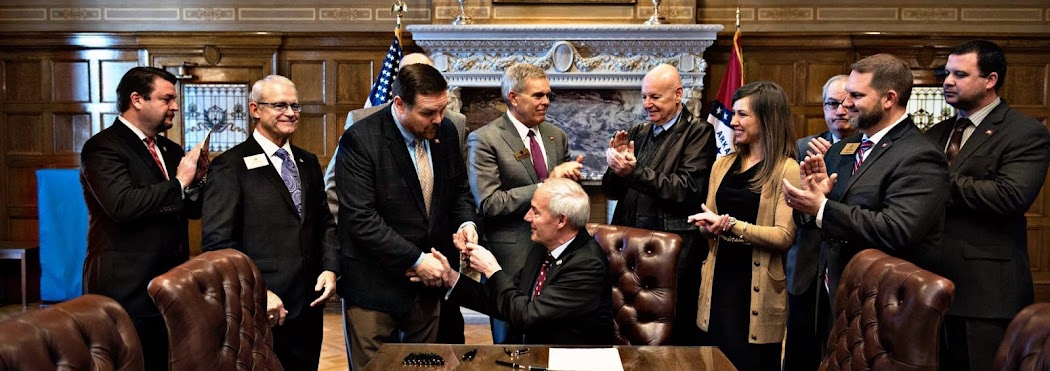The Arkansas Freedom of Information Act (FOIA) was signed into law by Gov. Winthrop Rockefeller (R) in 1967 and is one of the strongest protections of open government in the country. This allows the citizen to know what its government is doing so that the people can truly rule (regnat populus: the people rule – motto of the State of Arkansas). I often say that an engaged public is the key to good government and if government is allowed to hide its activities, any effort of the public to be engaged is practically subverted.
I really do believe this stuff and know that protecting our Arkansas Freedom of Information Act is a vital part of fulfilling our state motto. So why would I, or any legislator, support any exemption to our state FOIA? A good question, and one I should have to answer, or I am failing in my service to my constituents.
In 2017, the Arkansas legislature dealt with many bills that, if enacted, would provide new exemptions to the state FOIA law. Many of them were extremely broad in scope and would have done real damage to government transparency. Almost all of them were motivated by good intentions, but many of them could have had real detrimental effect on the citizens’ effort to control their government.
Many of those bills came to the committee I have the privilege to chair in the House of Representatives (House State Agencies), and most of them never made it out of that committee. Not because they were ill intended, but because of a potential for ill effect.
So, coming back to the question I should answer: why did any of them make it out of that committee?
As technology continues to develop and society continues to change, we find ourselves in a situation where the release of some information would have a far greater impact on the safety of individual citizens than the protection it provides to the public by accountability. That’s a mouthful, so let me provide some examples.
Several of the FOIA exemptions that passed this last legislative session dealt with security plans for schools, the governor’s office, State Capitol grounds, and other high risk locations – places never considered high risk targets in the past, but today could all be the target of terroristic activity. These exemptions were attempts to prevent sensitive information from falling into the wrong hands.
There were also exemptions that dealt with body cameras worn by law enforcement officers. One exemption was designed to protect the privacy of citizens who may be accused, but not yet convicted, and the other exemption would protect the dignity of an officer killed in the line of duty.
All of these exemptions passed into law have at least one thing in common: they were reasonable, both in scope and impact, and were designed to protect the public and their public servants.
I would argue that making these types of amendments to our strong FOIA laws actually further strengthens transparency and does not degrade it. It allows records to be made, information preserved, and citizens’ privacy protected in limited and necessary situations, without attacking the direct purpose of our FOIA laws, which is government transparency and accountability.
If we cannot make these types of reasonable alterations to our FOIA laws, the types of alterations that keep sensitive information out of the hands of terrorists and protects the privacy of citizens, we will find ourselves in a situation where the public will demand a repeal of our FOIA laws, something that no person who understands the value of government transparency wants to see.
As a bit of a post script, I would like to say, let us not allow this line of reasoning to go too far. Every proposed exemption to our state FOIA should be thoroughly vetted and scrutinized closely. It is good that the media and other citizen groups see themselves as the protectors of the act and the transparency it provides. Without this diligence, something great we hold here in Arkansas could be lost.
